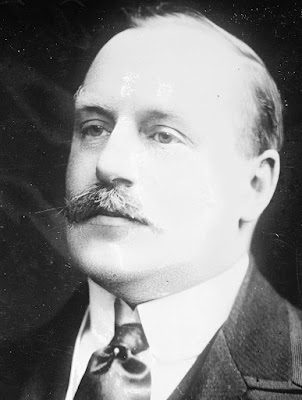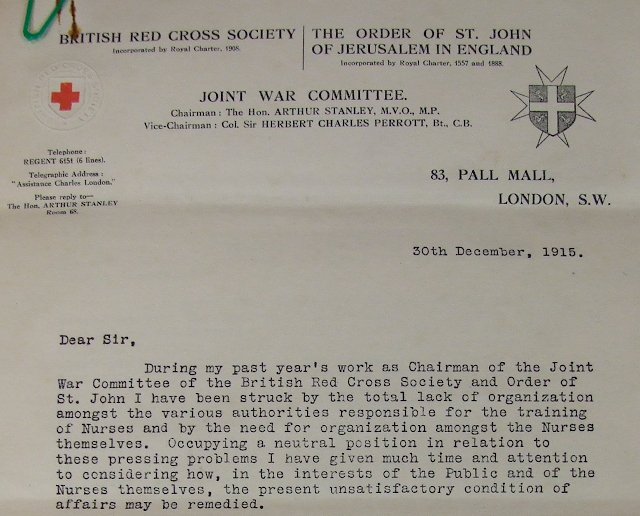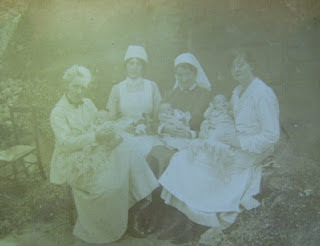The foundation of the College of Nursing and the question of Irish representation
This
year marks the 100th anniversary of the founding of the Royal
College of Nursing. During the cataloguing of the College’s correspondence for
the Letters of 1916 project I have found a wealth of material relating to the
establishment of the College of Nursing.
The
outbreak of the war in 1914 had a huge effect on Europe in many ways, including
an increase in the demand for nurses. To meet this need thousands of untrained
women joined the Voluntary Aid Detachment; a voluntary unit provided field
nursing services. This influx of
untrained nurses created a problem for the nursing profession, which was not
regulated at the time. Hospitals could
set up their own training centres, and women who had no medical training, could
become nurses in the VADs, much to the chagrin of professionally trained nurses
who were fighting for state recognition.
 |
| Sir Arthur Stanley |
In
a letter dated 30th December 1915, the politician Sir Arthur Stanley wrote about his
experience as Chairman of the Joint War Committee of the British Red Cross
Society and Order of St John’s of Jerusalem in England. He expresses his shock at the lack of
organisation among the nurses, and the authorities who trained them. He felt it was more important than ever to address
the lack of organisation in the profession, and improve the standards of nursing
care. Stanley’s solution was to establish a single body with the sole purpose
to support the highest standards in nurse training; with a single curriculum,
standard examination, and a register for all trained nurses. There was a general agreement amongst the
medical profession that nurses should be regulated, and many believed that a College
of Nursing would help to bring the nursing profession under better control.
 |
| Letter from Sir Arthur Stanley (TPCK/2/6/1/1) |
In
1916 a joint committee was set up by the Royal Colleges of Physicians of
Ireland and the Royal College of Surgeons in Ireland to discuss Sir Arthur
Stanley’s proposal. The Joint Committee invited matrons from Irish hospitals
and representative of Irish nurses’ organisations to join them. The correspondence and reports of this
committee show that the most important issue was the question of Irish
representation on the proposed College of Nursing’s Council. The Irish nurses felt that they were being
treated unfairly by the scheme, as they were not being offered enough
representation, especially compared to Scotland and England. The Joint Committee would not support the
College of Nursing, unless the issue of Irish representation was dealt with. In
the end the Committee decided it was a better idea to set up an Irish Nursing
Board to represent the Irish Nurses. This happened and, in February 1917, the
Irish Board joined the College of Nursing.
 |
| Nurses from Saint Ultan's Hospital, Dublin, c.1919 (SU/8/3/1) |
Ruth McCann
Library Intern